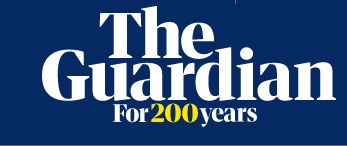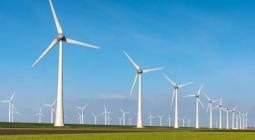"Grownup" leaders are pushing us towards catastrophe, says former US climate chief

Paris agreement negotiator Todd Stern attacks premiers who say that decarbonisation programmes are unrealistic and should be slowed down
Political leaders who present themselves as “grownups” while slowing the pace of climate action are pushing the world towards deeper catastrophe, a former US climate chief has warned.
“We are slowed down by those who think of themselves as grownups and believe decarbonisation at the speed the climate community calls for is unrealistic,” said Todd Stern, who served as a special envoy for climate change under Barack Obama, and helped negotiate the 2015 Paris agreement.
“They say that we need to slow down, that what is being proposed [in cuts to greenhouse gas emissions] is unrealistic,” he told the Observer. “You see it a lot in the business world too. It’s really hard [to push for more urgency] because those "grownups" have a lot of influence.”
But Stern said the speed of take-up of renewable energy, its falling cost, and the wealth of low-carbon technology now available were evidence that the world could cut emissions to net zero by 2050. “Obviously it’s difficult – we’re talking about enormous change to the world economy – but we can do it,” he said.
Stern would not name any world leaders, but he said the UK was in "retrenchment" over climate issues. Rishi Sunak and Claire Coutinho, the energy secretary, made several U-turns on climate policy last year, and have repeatedly said climate policies imposed "unacceptable costs on hard-pressed British families" and that by slowing such action they were “being pragmatic and protecting family finances”.
Stern said that, in fact, delaying action to cut greenhouse gas emissions was leading to disaster, given the rapid acceleration of the climate crisis, which he said was happening faster than predicted when the Paris agreement was signed. "Look out your window – look at what’s happening,look at the preposterous heat. It’s ridiculous."
Leaders who claimed to be grownups by saying the pace of action had to be slowed had to be honest about the alternatives, he said. Just as political leaders took swift action to prevent the spread of Covid-19 in 2020, so must they confront the consequences of slowing climate action now.
"All hard questions of this magnitude should be considered by way of a ‘compared to what’ analysis. The monumental dangers [the climate crisis] poses warrant the same kind of ‘compared to what’ argument when leaders in the political and corporate worlds balk at what needs to be done."
He warned of the backlash against climate action by “rightwing populism” in Europe. "Hopefully, it doesn’t go very far," he said. "If that kind of attitude gets some purchase among parts of the population, that’s not helpful."
Stern praised Joe Biden for “an extraordinarily good first term”, including the Inflation Reduction Act, which he called "far and away the most significant climate legislation ever in the US, and it’s quite powerful".
But he warned that if Donald Trump were to be elected this November, the US would exit the Paris agreement and frustrate climate action globally.
"He will try to reverse whatever he can in terms of domestic policy [on climate action],” he warned. “I don’t think anybody else is going to pull out of Paris because of Trump, but it’s highly disruptive to what can happen internationally, because the US is a very big, very important player. So [without the US] you don’t move as fast."
Stern called for stronger demonstration from civil society of support for climate action. "What we need, broadly, is normative change, a shift in hearts and minds that demonstrates to political leaders that their political future depends on taking strong, unequivocal action to protect our world," he said.
"Normative change may seem at first blush like a weak reed to carry into battle against the defenders of the status quo, but norms can move mountains. They are about a sense of what is right, what is acceptable, what is important, what we expect and what we demand."
Stern first gave his warning in a lecture at the London School of Economics on Friday night, in honour of the British civil servant Pete Betts, who served as the EU’s chief climate negotiator for the Paris agreement. He died last year.









